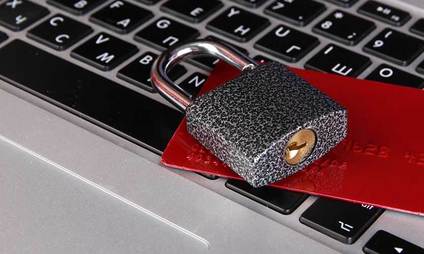PEARL is a quick and easy way to prioritise your spending and save more. With the PEARL system, you group your expenses into five categories; Postpone, Eliminate, Avoid, Reduce or Love. Essentially you allocate your expenses into the PEARL categories. Don’t let the simplicity fool you, PEARL is a powerful way to prioritise and keep your spending on track.
PEARL takes less than an hour to do and the benefits are immediate. The best part is PEARL helps you get ahead without missing out on the life you want. Ready to PEARL? Let’s begin.
How to create a pearl for your budget
1. List your Expenses
- List all of your regular expenses, from groceries and utilities to gym memberships, FOXTEL and going out. Flip through your credit card and bank statements to jog your memory, and categorise your expenses as you go. You may be surprised at what you find! Don’t worry too much about the exact amounts for each expense; the items themselves are enough. Same goes for one-off expenses. This works best where you spend on the same sort of things regularly.
- Label each item with a P E A R or L based on the system’s five categories; Postpone, Eliminate, Avoid, Reduce, or Love.
2. What to postpone
If you think you can postpone an expense, mark it with a P. Items in this category are often larger, so deliver quick wins. POSTPONE may be replacing your car or redecorating your home.
Keeping your car for five years instead of four can generate big savings without driving up the maintenance cost too much.
POSTPONE can also cover smaller items, so keep an eye out for these. Recurring expenses like haircuts or even dental treatments can all yield savings by postponing. If you get your hair cut every four weeks, and postpone it to every five weeks, you will cut that expense by a quarter. If 13 haircuts a year becomes 10, think how much will can save you. Your teeth won’t notice if you postpone your dental checkup from every six months to every eight or nine.
Postponing an expense has the added bonus of giving you time to think. You may not feel so keen to buy after waiting for a bit.
3. What to eliminate
Look for spending that you can ELIMINATE, such as subscriptions to magazines or news, Pay TV or streaming charges, wine clubs or unused memberships. Mark these with an “E.”
It’s easy to build up recurring expenses like subscriptions, that seemed like a great idea at the time. Sherpa says get rid of them. Keep the ones that are important, or talk to the provider about a better deal. Many companies keep the best deals for new customers, but can often be convinced to offer these deals to you if they think you’ll walk. Even the ones you choose to keep can yield savings if you downgrade. That premium FOXTEL subscription – do you use all those channels? Can you get what you really want on a cheaper package?
Mark what to Eliminate with an E.
4. What to avoid
We all have friends that can influence us to overspend. You know, the friend who encourages you to buy clothes that seem a great idea at the time, but you never end up wearing or returning. Then there are the places we go, and situations we get into that make us overspend.
For guys this often involves alcohol. When a ‘couple of beers after work’ becomes four or five, you may feel less inclined to take the bus and spend money on a cab. Then there’s the fast food your stomach ‘needed’ on the way home. Suddenly a couple of beers for an estimated $10 has blown out to over $100. Know your tipping point.
Mark what to Avoid with an A.
5. What to reduce
This category is a ‘gold mine’ and a favourite target for financial advisers. Skip your morning latte and brown bag your lunch they say. Sherpa says, ‘I never advise a client to skip their coffee if it’s important to them’. Cutting this type of expense is a slippery slope because the cuts are unsustainable, leading to blow-outs and disappointment.
Reducing the small stuff to save money can take a lot of time and effort and it creates more pain per dollar saved than the other areas.
Sustainable options to help you Reduce:
- Quality over quantity. I halved my coffee spend when my doctor suggested I cut back. I went from four or five cups a day to two, and none after lunch. I made it a game by seeking out the best in town. Turns out, really good coffee doesn’t cost much more than truly awful coffee!
- Go to the movies on Tuesday. Save money on cheaper tickets or buy in bulk.
- Plan your day. Planning ahead and managing your time will reduce the need to spend on cabs.
- Plan your food shopping. Another great way to avoid waste and get what you really need.
6. What to love
These are the things that are the most important to you. Might be your favourite brand of cosmetics, your travel plans, or good food and wine.
Keep what you save for the things you Love. If you want to make your budget sustainable, these are your most important expenses.
Allocating your expenses with the PEARL system to become more aware of where your money goes, and how much it costs to feel good.
Cut the stuff that doesn’t make you feel good and boost the stuff that does.

Vince Scully
Life Sherpa®
With over 25 years in Financial Services from consulting to management, Vince Scully is the go-to guy for wealth management and financial advice. Before creating Life Sherpa®, Vince founded the Calliva Group; a fund manager, product issuer, adviser and lender. Vince is an adviser to the Wealth Management Industry, and prior to his role as CEO at Calliva, a senior member of Macquarie Bank’s infrastructure team.
Related Articles
Sign up to learn more money management tips!
Trending Articles
Why not take a quick quiz?








